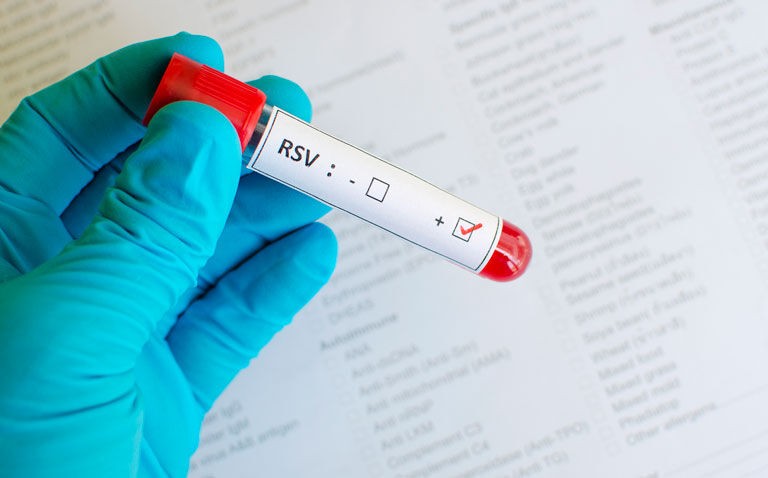Nirsevimab is recommended by the EMA for prevention of respiratory syncytial virus in newborns and infants during their first RVS season
Nirsevimab has been recommended for a marketing authorisation in the European Union for the prevention of Respiratory Syncytial Virus (RSV) lower respiratory tract disease in newborn babies and infants during their first RSV season and when there is a risk of RSV infection in the community.
Respiratory syncytial virus (RSV) is a common cause of childhood infections and which usually causes mild, cold-like symptoms. However, RSV can give rise to lower respiratory infection such as bronchiolitis and is also a major cause of hospital admissions in young children.
While there are a number of recognised risk factors for RSV in children including prematurity, low birth weight, maternal smoking and a history of atopy, other data has revealed that among children hospitalised with RSV, 79% were previously healthy.
Nirsevimab (brand name Beyfortus) a recombinant human monoclonal antibody with an extended half-life that binds the F1 and F2 subunits of the RSV fusion (F) protein at a highly conserved epitope, locking the RSV F protein in the pre-fusion conformation and blocking viral entry into the host cell.
In a study of 1453 preterm, healthy infants, a single 50 mg dose of nirsevimab administered before the RSV season gave rise to a 70.1% lower incidence of RSV infection and a 78.4% lower incidence of hospitalisation for RSV-associated infections over an 150-day period after administration of the dose.
Nirsevimab was supported through the EMA’s PRIority Medicines (PRIME) scheme, which provides early and enhanced scientific and regulatory support to promising new medicines that address unmet medical needs. Beyfortus was also evaluated under EMA’s accelerated assessment mechanism because prevention of RSV infection in all infants is considered to be of major public health interest.
Nirsevimab clinical efficacy
The effectiveness of the monoclonal antibody was evaluated in a randomised, double-blind, placebo-controlled trial in which infants with a gestational age of at least 35 weeks were given either a single 50 mg intramuscular injection of nirsevimab (or 100 mg if their weight was above 5 kg) or placebo in a 2:1 (nirsevimab: placebo) ratio.
The primary efficacy endpoint was medically attended RSV-associated lower respiratory tract infections through to 150 days after the injection. The secondary efficacy endpoint was hospitalisation due to RSV over the same time period. A total of 1,490 infants with a median age of 2.6 months (48.4% female) were enrolled in the trial.
The primary endpoint occurred in 1.2% of those receiving nirsevimab and 5% of those given a placebo injection, corresponding to an efficacy of 74.5% (p < 0.001) and the efficacy against hospitalisation for RSV was 62.1% (p = 0.07).
According to the EMA, the opinion of the Committee for Medicinal Products for Human Use (CHMP) is an intermediary step on Beyfortus’ path to patient access. This opinion will now be sent to the European Commission for the adoption of a decision on an EU-wide marketing authorisation and once granted, decisions about price and reimbursement will take place at the level of each Member State, taking into account the potential role/use of this medicine in the context of the national health system of that country.










